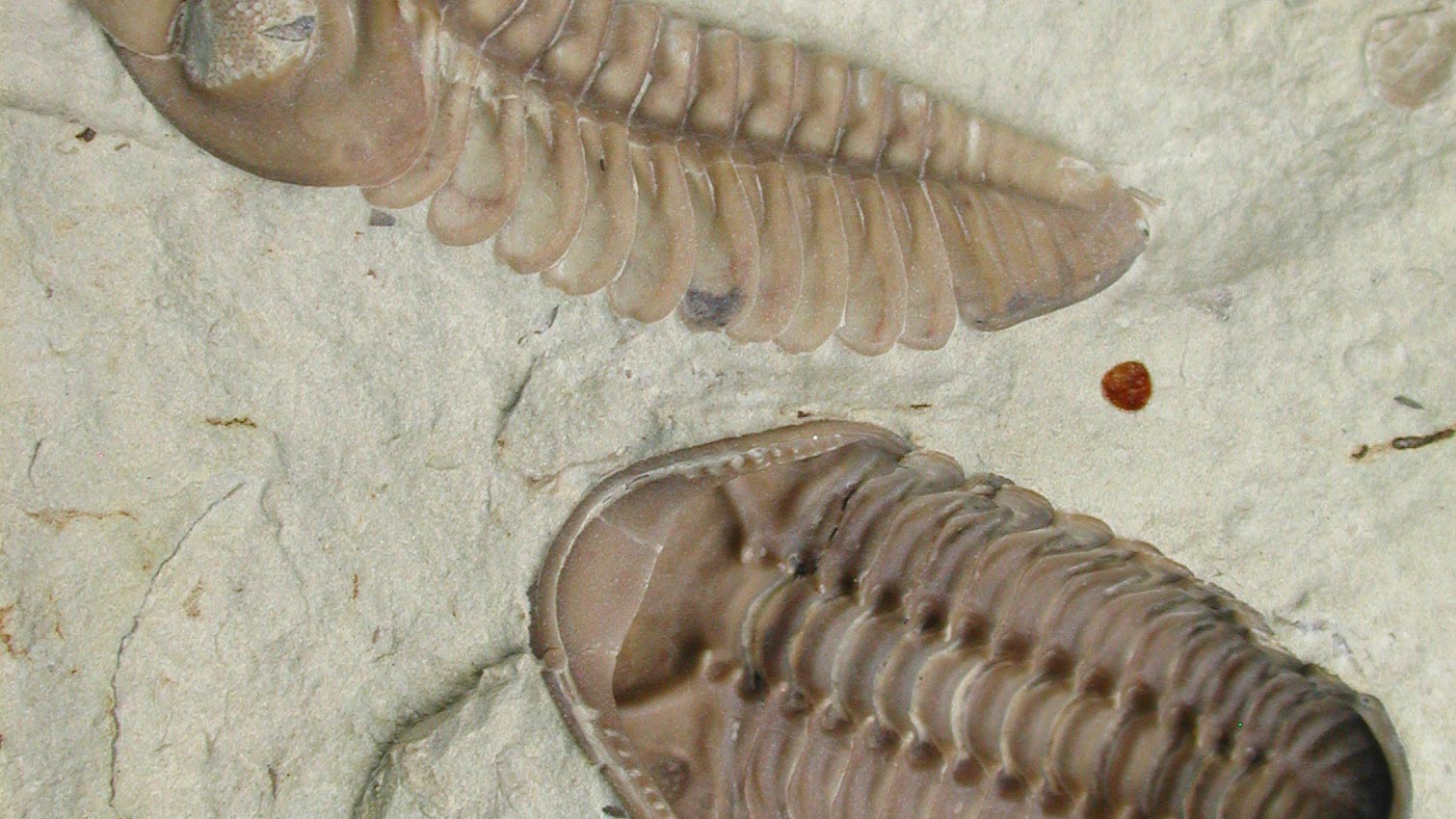 Two Kainops invius specimens.
Two Kainops invius specimens.
Moussa Direct Ltd.
Studies of brain evolution typically rely on interpreting observations of the brains of species that currently exist. Dr. Nick Strausfeld, Regents' Professor in Neuroscience, has studied the fossil traces of ancient brains and is using their characteristic arrangements to take a new look at the evolution of anthropods. He finds that the three major types of brains that are hallmark's of todays anthropods already existed over half a billion years ago. Brain structures such as those that underlie the selection of responses to environmental stimuli appear to have evolved early complexity to provide behavioral repertoires that met the challenge of diverse environments that arose early, even before the Cambrian explosion.
IN THIS EPISODE
Nicholas J. Strausfeld, Ph.D, Regents's Professor in the U of A's Department of Neuroscience and Director, Center for Insect ScienceLeslie Tolbert, Ph.D, Regents' Professor in the University of Arizona's Department of Neuroscience
MORE:

By submitting your comments, you hereby give AZPM the right to post your comments and potentially use them in any other form of media operated by this institution.